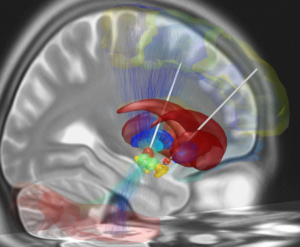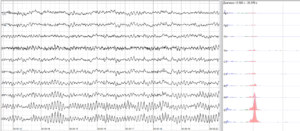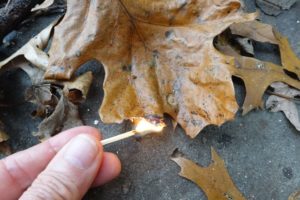Posts Tagged ‘depression’
Treating Depression by Brain-Implanted Electerodes–New method raises old questions
“I just laughed out loud,” Sarah said describing the first time doctors stimulated electrodes implanted in her brain. “That was the first time I spontaneously laughed and smiled in five years.” Major depressive disorder is a serious, life-risking condition that can be difficult to treat. Sarah had suffered severe depression for years, which was not…
Read MoreGamma Waves in the Brain–Fumes or Fundamental?
SAN DIEGO—The most fundamental question of how information is coded and processed in the brain is being re-examined, and the controversy drew an overflow crowd of neuroscientists to participate in an intense debate at the Society for Neuroscience Annual Meeting in San Diego. The textbook explanation that information is coded digitally by the firing rate…
Read MoreCalifornia wildfires–What sort of person is compelled to commit arson?
Something more can be done in addition to environmental action to help prevent wildfires. First published in Psychology Today. The inferno of tragic fires in California has destroyed thousands of homes, incinerated hundreds of thousands of acres, and killed many people this year. In the latest, the entire town of Paradise was reduced to smoldering ash. Highlighting the…
Read MoreShock Therapy: New Understanding and Old Ignorance
WASHINGTON, DC–Speaking at the Society for Neuroscience meeting in Washington, DC on November 14, 2017, Dr. Wendy Marie Ingram, Psychiatric Epidemiologist at the Geisinger Medical Institute in Pennsylvania, presented new research on the effects of anesthesia on electroconvulsive therapy (ECT or shock therapy). The results help answer long-standing questions about the controversial treatment, but social…
Read MoreCreativity Madness and Drugs
Writers are crazy and rock musicians want to be–neuroscientists meet and explain why San Diego–Would we have Poe’s Raven today if the tormented author had taken lithium to suppress his bipolar illness? Not likely, considering the high frequency of psychiatric illnesses among writers and artists concludes psychiatrist Kay Jamison of Johns Hopkins Medical School speaking…
Read More

